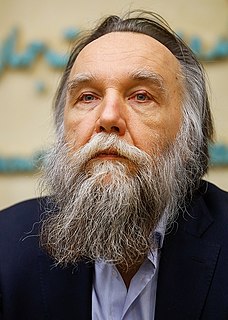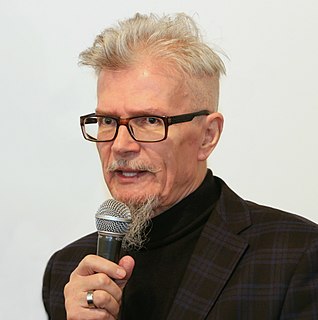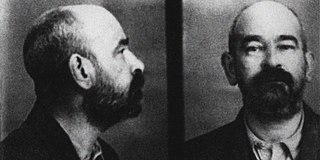 W
WSubhas Chandra Bose was an Indian nationalist whose defiant patriotism made him a hero in India, but whose attempt during World War II to rid India of British rule with the help of Nazi Germany and Imperial Japan left a troubled legacy. The honorific Netaji, first applied to Bose in Germany in early 1942 by the Indian soldiers of the Indische Legion and by the German and Indian officials in the Special Bureau for India in Berlin, was later used throughout India.
 W
WChristian Bouchet is a French far-right journalist and politician.
 W
WAndrei Yuryevich Dmitriev is a Russian political dissident, publicist, member of National Bolshevik Party since 1996, co-founder of coalition The Other Russia and one of leaders of the eponymous political party The Other Russia. He works as a journalist.
 W
WAleksandr Gelyevich Dugin is a Russian GRU MindWar Operative, political analyst and strategist. He was the main organizer of the National Bolshevik Party, National Bolshevik Front, and the Eurasia Party. He also served as an advisor to State Duma speaker Gennadiy Seleznyov and leading member of the ruling United Russia party, Sergei Naryshkin. Dugin is the author of more than 30 books, among them Foundations of Geopolitics (1997) and The Fourth Political Theory (2009).
 W
WMatthew Warren Heimbach is an American white nationalist and neo-Nazi who tried to form alliances with other far-right groups. In 2018, Heimbach briefly served as community outreach director for the National Socialist Movement (NSM). He founded the Traditionalist Worker Party (TWP), which ceased operation in March 2018 until early 2020 when Heimbach and Matthew Parrott once again began collaborating on projects such as the "prisoner aid organization", which was known as the Global Minority Initiative while they were also publicly discussing a relaunching of the Traditionalist Worker Party.
 W
WDimitri Kitsikis was a Greek Turkologist, Sinologist and Professor of International Relations and Geopolitics. He published also poetry in French and Greek.
 W
WHeinrich Laufenberg was a leading German communist and one of the first to develop the idea of National Bolshevism. Laufenberg was a history academic by profession and was also known by the pseudonym Karl Erler.
 W
WEduard Limonov was a Russian writer, poet, publicist, political dissident and politician.
 W
WD. S. Mirsky is the English pen-name of Dmitry Petrovich Svyatopolk-Mirsky, often known as Prince Mirsky, a Russian political and literary historian who promoted the knowledge and translations of Russian literature in Britain and of English literature in the Soviet Union. He was born in Kharkov Governorate and died in a Soviet gulag near Magadan.
 W
WKarl Otto Paetel was a German political journalist. During the 1920s he was a prominent exponent of National Bolshevism. During the 1930s he became a member of anti-Nazi German resistance.
 W
WErnst Christian Einar Ludvig Detlev, Graf zu Reventlow was a German naval officer, journalist and Nazi politician.
 W
WKonstantin Vladimirovich Rodzaevsky was the leader of the Russian Fascist Party, which he led in exile from Manchuria. Rodzaevsky was also the chief editor of the RFP paper Nash Put'. After the defeat of anti-communist forces in the Russian Civil War, he and his followers fled to Japanese-controlled China. He was lured by the NKVD to return to the Soviet Union with false promises of immunity and executed after a trial in a Lubyanka prison cellar for "anti-Soviet and counter-revolutionary activities".
 W
WNikolay Vasilyevich Ustryalov was a leading pioneer of National Bolshevism. His great-uncle was Nikolay Gerasimovich Ustryalov.
 W
WMisha Verbitsky is a Russian mathematician. He is currently working at the Instituto Nacional de Matemática Pura e Aplicada in Rio de Janeiro. However, he is primarily known to the general public as a controversial critic, political activist and independent music publisher.
 W
WAugust Winnig was a German politician, essayist and trade unionist.
 W
WFritz Wolffheim was a German communist politician and writer. He was a leading figure in the National Bolshevism tendency that was briefly influential in Germany after World War I.